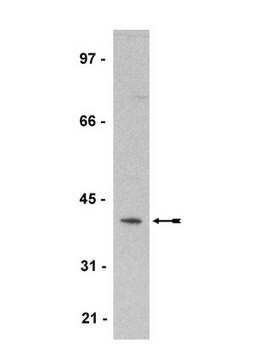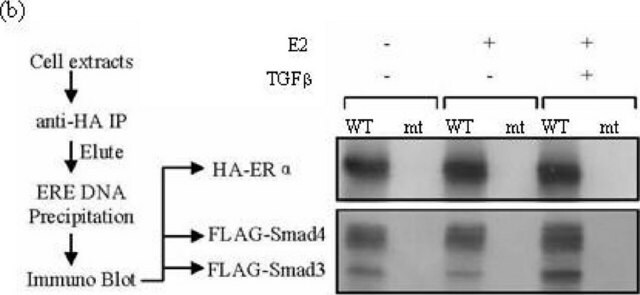SAB4200657
Monoclonal Anti-EEF1A1 antibody produced in mouse
clone EF48, purified from hybridoma cell culture
Sinónimos:
CCS-3, CCS3, EE1A1, EEF-1, EEF1A, EF-Tu, EF1A, GRAF-1EF, HNGC:16303, LENG7, PTI1, eEF1A-1, eukaryotic translation elongation factor 1 α 1
About This Item
Productos recomendados
origen biológico
mouse
Nivel de calidad
forma del anticuerpo
purified immunoglobulin
tipo de anticuerpo
primary antibodies
clon
EF48
Formulario
buffered aqueous solution
reactividad de especies
bovine, mouse, rat, human, monkey, canine
concentración
~1 mg/mL
técnicas
immunoblotting: 1-2 μg/mL using whole extracts of HEK-293T cells.
immunofluorescence: 0.5-1 μg/mL using SW-620 cells.
isotipo
IgG2b
Nº de acceso UniProt
Condiciones de envío
dry ice
temp. de almacenamiento
−20°C
modificación del objetivo postraduccional
unmodified
Información sobre el gen
human ... EEF1A1(1915)
mouse ... Eef1a1(13627)
rat ... Eef1a1(171361)
Descripción general
Inmunógeno
Aplicación
Acciones bioquímicas o fisiológicas
Forma física
Cláusula de descargo de responsabilidad
¿No encuentra el producto adecuado?
Pruebe nuestro Herramienta de selección de productos.
Código de clase de almacenamiento
10 - Combustible liquids
Clase de riesgo para el agua (WGK)
WGK 1
Punto de inflamabilidad (°F)
Not applicable
Punto de inflamabilidad (°C)
Not applicable
Elija entre una de las versiones más recientes:
Certificados de análisis (COA)
¿No ve la versión correcta?
Si necesita una versión concreta, puede buscar un certificado específico por el número de lote.
¿Ya tiene este producto?
Encuentre la documentación para los productos que ha comprado recientemente en la Biblioteca de documentos.
Nuestro equipo de científicos tiene experiencia en todas las áreas de investigación: Ciencias de la vida, Ciencia de los materiales, Síntesis química, Cromatografía, Analítica y muchas otras.
Póngase en contacto con el Servicio técnico








